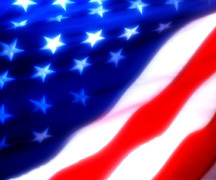
Can you define the American dream? Is the dream evolving? Is it different for every individual? Is it an exclusively American idea or does it resonate around the world? Where in the library would one go to do research about it, and what materials would one look for? Has this dream become an obsolete concept? Or is it timeless? Is its study more timely than ever, helping to examine our identity, our actions and our shared global future?
Gay Dannelly, associate director for resources and collection services at the University of Notre Dame’s Hesburgh Libraries, points to recent studies and other documents, most of which reveal different definitions of the American dream; alternatively based on the ability to lift one’s family to new levels of prosperity, or one’s freedom from the shackles of prejudices and unjust restraints, or access to the rewards of one’s talent and hard work.
Dannelly points out that the American dream, as experienced by various generations and groups of Americans, is a helpful lens through which to examine the stories of immigrants in today’s world, at a University that has served and celebrated the hopes of this nation’s newcomers.Many academic disciplines offer complementary, international perspectives on the phenomenon.
So how can the Hesburgh Libraries expand their resources to explore the American dream more comprehensively and compellingly? That question has been answered in large part by a recent, generous endowment that gave birth to the Joe and Gina Prochaska Family Initiative on the American Dream.
The Prochaskas’ gift arises from an appreciation of their own roots in this"nation of immigrants"and a desire to use the American dream as a lens through which people today can understand each other’s visions and values better, says Dannelly. Students are hungry for this understanding, and Notre Dame has a growing number of courses about groupsfrom the Irish of yesterday to today’s Hmong people of Southeast Asiawhose journeys speak volumes, and the Prochaskas want to facilitate such studies.
“There’s a lot of potential for this endowment enabling the libraries to support the kinds of classes that are dealing with immigrant issues,”Dannelly says.
Financial support is going first to collaborations between the libraries and the College of Arts and Letters, which may lead to new collections, courses, summer experiences or speaker events in the social sciences and humanities.
How will the libraries take full advantage of the breadth of the topic and the many potential choices of resources?
“We’re trying to get our hands around the concept,”Dannelly says.Likely first steps will include acquisitions of DVDs and newspapers showing"slices of life"in America. A collection of historical U.S. newspapers, many of them detailing the immigrant experience, has already been purchased.
“The concept of the American Dream has multiple meanings, mythically and realistically,”says Robert Schmuhl, Walter H. Annenberg-Edmund P. Joyce Chair in American Studies and Journalism.“Understanding those meanings within their historical and contemporary context requires both a variety of perspectives and a multitude of sources. The Prochaska Endowment is a significant, most-welcome, first step for faculty and students at Notre Dame — and the wider academic community — to come to terms with this fundamental ideal and yearning at a critical time.”
The plan for studying the American Dream is still taking shape, and input from faculty and students will help to guide the initiative’s agenda. That plan is likely to expand beyond the College of Arts and Letters to include a much wider range of courses and research opportunities, from business to science and beyond.
One of the many ways in which the Prochaska gift complements Notre Dame’s mission and goals is the interdisciplinarity of the subject matter. That is a win-win for the campus community and the Hesburgh Libraries, whose work spans virtually all realms of knowledge by design.
“The Prochaska Family Initiative will let us bring together interest from a number of departments across campus,”comments Dannelly.
_ Contact: Gay Dannelly, 574-631-3282,_ " dannelly.1@nd.edu ":mailto:dannelly.1@nd.edu
TopicID: 30828